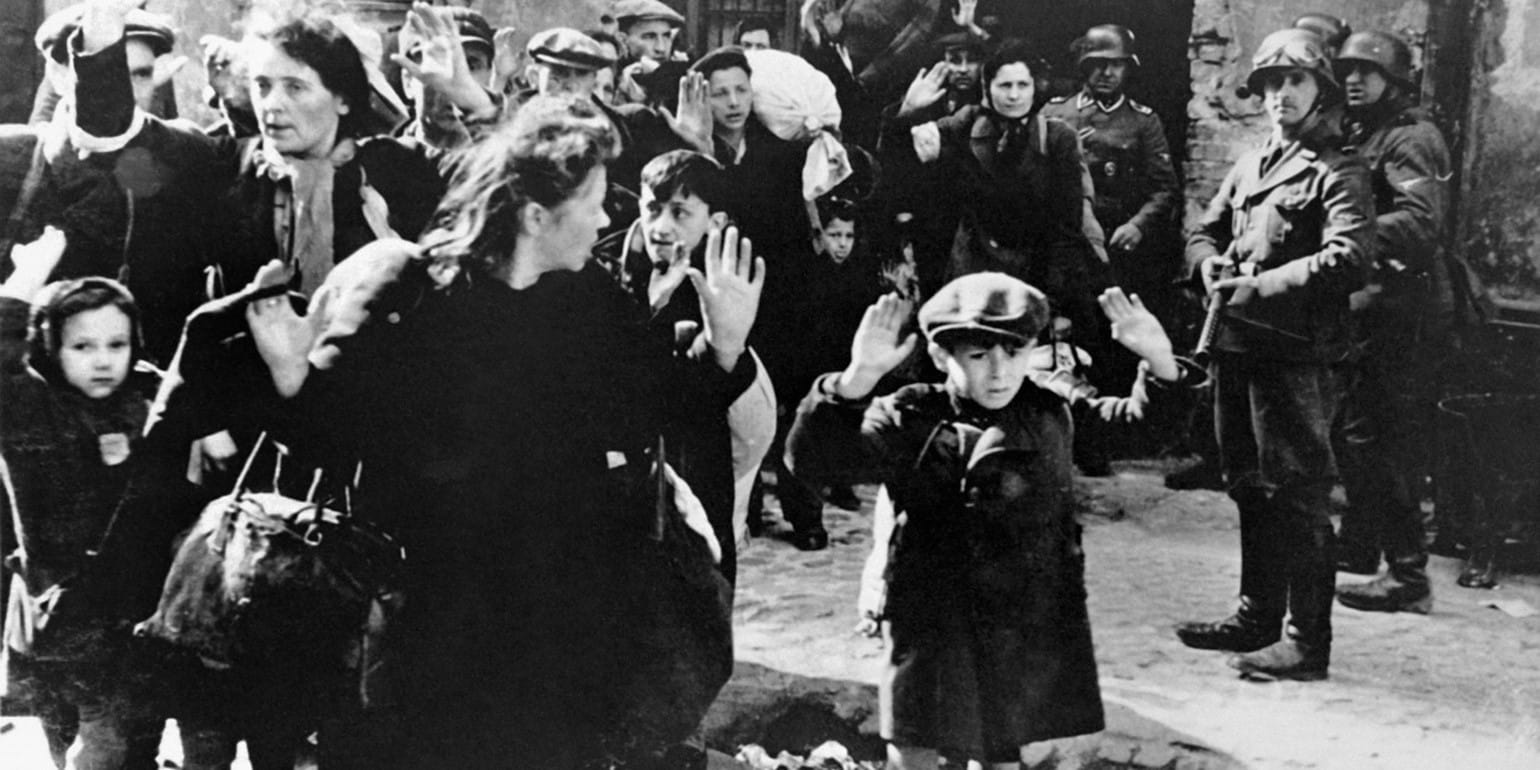
A Christian citizen’s duty to the common good
By MJ Kurdys
In the early 1930’s, Friedrich Gustav Emil Martin Niemöller was a German citizen and supporter of Hitler’s National Conservative movement. He was known to have made remarks to others denigrating the Jews and silently watched as they and other groups not in fitting with Hitler’s Aryan utopia, were gradually expelled from German society. It was only after the Nazis took control of the Church in Germany that Niemöller became alarmed. So incensed by these developments, he began to fervently speak out against the Nazi Party, and soon found himself imprisoned in the very same concentration camps which housed the Jews he had earlier disdained. By the grace of God, he survived after almost eight years in Sachsenhausen and Dachau and later became a vocal anti-war activist.
While in prison, he came to bitterly regret his callous disregard for those who had been led away at gunpoint to their imprisonment, torture, and death. Niemöller penned a famous poem in self-admonishment, and perhaps as a warning to others, “First, They Came for the Jews.” Perhaps you are familiar with it – it’s a warning we would all be well-advised to heed in today’s troubled times.
First, they came for the Jews
and I did not speak out
because I was not a Jew.Then they came for the Communists
and I did not speak out
because I was not a Communist.Then they came for the trade unionists
and I did not speak out
because I was not a trade unionist.Then they came for me
and there was no one left
to speak out for me.Martin Niemöller
1892-1984
The process of “othering” entire groups of people has led to some of the most devastating periods in human history. It begins by isolating entire groups of a population for some reason, treating people not as individuals, but as a member of some undesirable whole. It is a process of dehumanizing by denying others of the very traits which make them human – their intellect and free will. A modern version of this process is unfolding before our very eyes.
It began with comments on social media, initially about those who questioned the benefit of masks, but now the target being isolated are those who have not yet been vaccinated: “The unvaccinated are dangerous.” “The unvaccinated should be denied hospital care to leave room for the responsible.” “Shun the unvaccinated!” “How can people be so selfish?” Our political leaders have joined the fray in support of universal vaccines: “The vaccines come from God. I need you to be my apostle,” said New York Governor Hochul. President Biden frequently claimed, “This is a pandemic of the unvaccinated,” unequivocally placing blame for the current spread on those who have chosen not to be jabbed yet. Pope Francis told us it is “an act of love” to receive the vaccine, the implication for those who choose otherwise, clear. By advocating a one-size-fits-all narrative, these comments betray a dismissal of the individual reason and logic behind the opposing view.
These are just words, and though sometimes uncomfortable, words don’t interfere with individual decision-making. But suddenly our leaders are beginning to lose patience with the unvaccinated and have implemented mandates and effectively denying citizens the ability to make their own health choices. Entire healthcare systems, state, federal, even private entities are requiring this medical intervention as a condition of employment. A Bishop in New Brunswick, Canada declared vaccinations as a requirement to attend weddings and funerals. Access to many commercial establishments in New York City, including grocery stores, now requires proof of vaccination. College students are required to be vaccinated to attend classes, even via computer. The unvaccinated are suddenly having to choose between earning an income, participating in sacraments, buying groceries, or attending college and consenting to a serious medical intervention about which they have serious concerns. When expressing concerns, these folks are often being met with nonchalance, impatience, insolence, and sometimes outright hostility. While you may not agree with their responses, perhaps you agree that these times are so unique and the circumstances so dire that it warrants the suspension of even personal medical freedoms – and all in the name of serving the common good.
What is this “common good” for which we are so cavalierly willing to thwart the medical freedoms of those who disagree? Does it consist of the sum of our individual needs and desires, all somehow interconnected or are the individual’s needs and desires disconnected, some more or less important depending on the prevailing attitudes of the times in which they live?
St Paul thought the good of all humanity was integral to the joy of the individual. The Christians of Corinth had been quarreling among themselves over petty jealousies and bitter rivalries, disrupting the peace and joy of the community as a whole. He wrote his beautiful portrayal of God’s notion of the “common good.” He taught that each human person is a vital part of the whole body which depends on each one fulfilling the role for which it was created. “The eye cannot say, I have no need of you, nor again the head to the feet, “I have no need of you…” The Compendium of the Social Doctrine of the Church conveys it this way:
“The principle of the common good, to which every aspect of social life must be related if it is to attain its fullest meaning, stems from the dignity, unity and equality of all people. According to its primary and broadly accepted sense, the common good indicates “the sum total of social conditions which allow people, either as groups or as individuals, to reach their fulfilment more fully and more easily”. The common good does not consist in the simple sum of the particular goods of each subject of a social entity.” 164
 It’s helpful to think of this interconnectedness in terms of the family. Parents have an innate sense that the wellbeing of each member should be in harmony with the wellbeing of the family. The goal of the parents includes that their children reach their spiritual and material potential. When parents fail in this pursuit, they naturally and correctly deem themselves as having failed to reach their potential. Conversely, when each member of the family is respected and supported, the family thrives.
It’s helpful to think of this interconnectedness in terms of the family. Parents have an innate sense that the wellbeing of each member should be in harmony with the wellbeing of the family. The goal of the parents includes that their children reach their spiritual and material potential. When parents fail in this pursuit, they naturally and correctly deem themselves as having failed to reach their potential. Conversely, when each member of the family is respected and supported, the family thrives.
Contrary to the Church’s perspective, the secular view of the “common good” seems to view each individual as just another one of the whole. Indeed, the secular notion of the co mmon good views private interests as legitimate only insofar as they agree with the public interest. The parents in our earlier example see their children as detractions from career or other personal interests. The private interests of their children can be thwarted or discounted if in conflict with that of their parents.
mmon good views private interests as legitimate only insofar as they agree with the public interest. The parents in our earlier example see their children as detractions from career or other personal interests. The private interests of their children can be thwarted or discounted if in conflict with that of their parents.
The secular version of the public “common good” serves the private interests of the individual only if those interests are not in conflict with the prevailing will of the public. It views individuals who exercise their freedom as obstacles to the prevailing public interest. It judges human intellect and free will, dispensable. It has a transitory and everchanging definition, depending on what entity happens to be in power at the time.
The justification put forward by leaders in government, business, and religious institutions belies an understanding of the “common good” more similar to the public idea than that of the Church. What are the implications for those individuals who have been denied their ability to exercise their God-given intellect and free will? Is there joy to be found for these people? No, more likely, despair.
A few days ago, a dear friend told me that her daughter was deeply depressed. This young mother of two had learned she would soon be required to consent to the Covid -19 vaccination as a condition of employment. Conscience and medical exemptions would be rarely approved. As the main income earner and holder of benefits for her family, she was devastated by the news. She had determined, in consultation with her doctor and after careful consideration of the facts, that the vaccine was not the best course for her. She went home, curled up into a ball, and wept. This woman is not alone. An accomplished opera singer has lost her job at the Metropolitan Opera House in NY City over the vaccine mandates. She had a legitimate exemption granted by her doctor because of a vaccine injury she had suffered years earlier. It didn’t matter. Every single day we are seeing and hearing similar stories from friends, family members, and the media with troubling frequency. How can we, in good conscience, meet their concerns with a yawn or a sneer?
Why should we care? Because it is our duty, not only as citizens of any particular country but most especially as Christians. We have a duty to respect and defend the God-given freedoms of our fellow human beings, whether or not we agree with his or her moral determination of how those freedoms manifest themselves in practice. We owe it to friend and foe to listen and seek understanding of their honestly held beliefs. From the Catechism of the Catholic Church:
Freedom is exercised in relationships between human beings. Every human person, created in the image of God, has the natural right to be recognized as a free and responsible being. All owe to each other this duty of respect. the right to the exercise of freedom, especially in moral and religious matters, is an inalienable requirement of the dignity of the human person. This right must be recognized and protected by civil authority within the limits of the common good and public order.
No. 1738
Dear reader, please heed the warning of Pastor Martin Niemöller. If we, the members of Corpus Christi For Unity and Peace, are to take up our mission, we must take every opportunity to safeguard the dignity of every single human person. Speak up for those with whom you might disagree. Be involved by writing or calling decision-makers. Next time, it could be you or someone you love.
